#Vladimir Kirillovich
Text
CHILDREN OF PRINCESS VICTORIA MELITA OF EDINBURGH 🥺💙✨️🫶
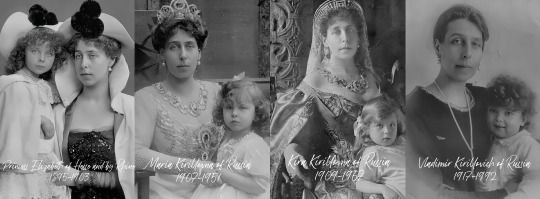
Princess Victoria Melita (25 November 1876 – 2 March 1936) was the second daughter and third child of Prince Alfred of Saxe-Coburg and Gotha and Grand Duchess Maria Alexandrovna of Russia! She was the granddaughter of Queen Victoria from her English father's side and Tsar Alexander II's granddaughter from her Russian mother's side. She is famous for her divorce and remarriage scandals!
In 1894, at the age of 18, at the suggestion of her grandmother, Queen Victoria, she married her cousin, Prince Ernest of Hesse and by Rhine! Between 1895 and 1900, Victoria Melita and Ernest had 2 children:
Princess Elizabeth of Hesse and by Rhine (11 March 1895 – 16 November 1903) affectionately known as "Ella"!
a stillborn son (25 May 1900 - 25 May 1900) who died in the womb of his mother
In 1900, Victoria Melita gave birth to a stillborn son, which was very disappointing for Queen Victoria!
In 1901, Princess Victoria Melita and Ernest divorced because they had an unhappy and incompatible marriage.
They were first cousins who married under family pressure, but they soon realized that they had nothing in common Princess Victoria was in love with another cousin, Grand Duke Kirill Vladimirovich of Russia, while Ernest was rumored to be a homosexual.
Princess Victoria Melita had a complicated and tragic relationship with her daughter Princess Elisabeth...
She was fond of her daughter, but she was not very involved in her upbringing.
Princess Victoria Melita's relationship with her daughter Princess Elisabeth was strained after the divorce.
Princess Elisabeth blamed her mother for the divorce and resented her for leaving her father. Princess Victoria tried to reconnect with her daughter during her visits, but she was only partially successful.
Princess Elisabeth was very close to her father and preferred to stay with him at Wolfsgarten, where he built her a small house of her own in the woods. Princess Victoria and Princess Elisabeth never had a chance to fully reconcile, as Princess Elisabeth died of typhoid fever in 1903, at the age of eight. It was a tragic loss for both parents, who loved their little daughter dearly.
Victoria melita later wrote in her memoirs: "My little Ella was taken from me. She was the joy of my life and I never really recovered from this loss."
Victoria melita's memories of her daughter were mostly sad and bitter, but she also cherished some happy moments they shared.
She remembered how Ella loved animals and nature, and how she enjoyed playing in the woods near Wolfsgarten, where Ernest built her a small house of her own. She also remembered how Ella had a sweet and gentle personality, and how she looked like a fairy with her Dark hair and blue eyes...
Two years after the death of her daughter Elizabeth, in 1905 she married her cousin and long-term lover Kirill Vladimirovich!
In 1907, Victoria Melita and Kirill welcomed their first child, a daughter named Marie.
Marie was named after her maternal grandmother!
In 1909, Kirill and Victoria Melita welcomed their second child, a daughter named Kira!
And in 1917, Kirill and Victoria Melita welcomed their third and last child, a son named Vladimir, The birth was so difficult and painful that 41-year-old Victoria Melita went near death during the birth of Vladimir!
Princess Victoria Melita had 3 children from her second marriage who survived to adulthood and married and all had children.
Despite the birth of three more children, Princess Victoria Melita never forgot her little Elizabeth and always kept a portrait of her in her room until her death in 1936...
#Victoria melita of Edinburgh#princess elisabeth of hesse#Marie Kirillovna#Kira kirillovna#Vladimir Kirillovich
27 notes
·
View notes
Note
Is there any truth that certain members of the Romanov family worked with the Nazi’s in hopes that Hitler would offer them the throne of a defeated and diced up Russia?
"In this grave hour, when Germany and almost all the nations of Europe have declared a crusade against Communism and Bolshevism, which has enslaved and oppressed the people of Russia for twenty-four years, I turn to all the faithful and loyal sons of our Homeland with this appeal: Do what you can, to the best of your ability, to bring down the Bolshevik regime and to liberate our Homeland from the terrible yoke of Communism."
Vladimir Kirillovich made the preceding statement on 26 June 1941 (four days after Barbarossa) in hopes of appealing to anti-communists within Russia to rise up against the Soviet Union. In 1942, Vladimir and his family were placed in a concentration camp in Compiègne after he had refused to make a statement that specifically encouraged White emigres to support Nazi Germany's war against the Soviet Union. Afterward, he worked with Boris Smyslovsky, a Finnish collaborator, to escape being captured by the Soviet Union. So it looked like he made a statement at the beginning and stopped speaking about it when it was clearer that it would not. So ultimately it seemed half-hearted and self-serving, motivated largely out of fear and self-preservation for himself and his family.
Thanks for the question, Anon.
SomethingLikeALawyer, Hand of the King
13 notes
·
View notes
Text
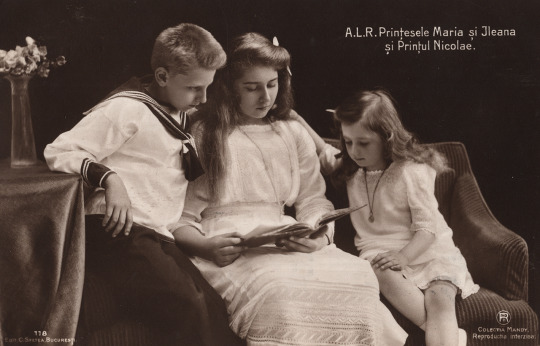
Romanov relatives: Nicolae, Maria and Ileana of Romania.
Younger siblings of OTMA suitor Prince Carol, they were related to OTMAA through both the British and Russian lines via their mother Queen Marie, eldest daughter of Prince Alfred and Grand Duchess Maria Alexandrovna. They were also first cousins of Maria Kirillovna, Kira Kirillovna, and Vladimir Kirillovich.
#romanov relatives#romanian royal family#nicolae of romania#nicholas of romania#maria of romania#mignon of romania#ileana of romania#my collection
20 notes
·
View notes
Note
if russia decided to bring the romanov dynasty back someday, who do you think would rule the emire? there's a lot of options
Hi! This is a tough one. For me i think it depends on the people. So we all know how imperial Russias monarchy was, and it wasn’t great so if it were to come back to a monarchy i think that maybe a constitutional monarchy would be better than an autocracy. If there were to be a monarch on the throne, i think that the best person would be Maria Vladimirovna. Even though the succession law says that only a man can inherit the Russian throne, it can be changed since there was no monarchy for over a century. MV is the closest in line to the throne but is a women and their are other males in the surviving Romanov family but are further in line from MV. Her father was Vladimir Kirillovich who’s parents were both first cousins of Tsar Nicholas II so there is a close relationship. I also think that she is the most well known surviving Romanov of the family and would be popular with the people.
Thank you for asking me questions!!!!!!
#thank you for asking me historical questions!!!#ask#european monarchies#what if russia was a monarchy#romanov#maria Vladimirovna
5 notes
·
View notes
Text
El imperio y su realización

Por Alexander Dugin
Traducción de Juan Gabriel Caro Rivera
¿Cuáles son los requisitos mínimos para que el Imperio ruso vuelva a surgir? El padre Vladimir Tsvetkov, eremita y prior del monasterio de Sofronie, cerca de Arzamas, alguna vez se preguntó por la razón por la cual nosotros debíamos rezar siempre. La misma pregunta se hizo Konstantin Malofeev en la introducción a su libro Imperio y por eso se cuestionaba donde podíamos encontrar el Imperio hoy en día.
He terminado de escribir un nuevo libro sobre este problema, El origen y el Imperio, el cual podría decirse que es una “Enciclopedia sobre la Idea Imperial” o una especie de esbozo sobre la ontología imperial a partir del arquetipo del Rey de la Paz y sus diferentes manifestaciones como la monarquía sagrada y los diferentes Imperios históricos que han surgido – el Katechon y la dialéctica imperial rusa – hasta llegar a los diversos simulacros modernos del imperialismo como el expansionismo británico y el actual “Imperio” estadounidense.
No obstante, todas estas son reflexiones de carácter teórico y, aunque son fundamentales, no ofrecen una solución práctica para su la restauración del Imperio. Es por eso que decidí hacer lo mismo que el eremita Vladimir y analizar este problema de forma sistemática con tal de proponer una serie de posibilidades para reconstruir un Imperio ruso. Las siguientes son algunas propuestas que me gustaría fueran sometidas a debate y criticadas de forma inmisericorde:
1. El Imperio ruso puede surgir nuevamente de un milagro, ya que todo Imperio tiene un origen divino. Si este milagro no hace parte de las acciones de Dios, entonces se trata más bien de un “milagro negro” realizado por el diablo. Los seres humanos son incapaces de crear un Imperio porque este último tiene un origen sacral indiscutible. Si no se produce un milagro, entonces no surgirá realmente un Imperio. No obstante, nosotros hemos puesto nuestra fe en el Dios vivo que obra maravillas.
2. Las enseñanzas religiosas y escatológicas del Imperio viven dentro de la Iglesia, especialmente en la idea de que el Zar cumple la función del Katechon. Esta idea ha sido muy popular dentro de la Iglesia Ortodoxa Rusa en el Exterior y entre sus enseñanzas encontramos la glorificación tanto de los mártires antiguos como de los nuevos mártires que surgieron de la Revolución. Cuando en 1990 se produjo la reunificación del Patriarcado de Moscú y la Iglesia Ortodoxa Rusa en el Exterior esta enseñanza fue aceptada por la totalidad de la Iglesia Ortodoxa Rusa. Por otro lado, el Patriarcado de Moscú no creo ninguna forma de teología política durante el período soviético (algo que se volvió imposible debido al fracaso de los renovadores), por lo que podemos afirmar que la monarquía es la única forma de gobierno ortodoxa y los ataques que realizan los “clérigos liberales” en su contra no son más que los ataques de histeria típicos de los “agentes extranjeros”.
3. El Imperio (como la monarquía) es una institución y por eso puede ser restaurado por medio de varias reformas políticas que permitan la reconstrucción del espíritu de la autocracia rusa. La cantidad de reformas político-teológicas y jurídicas que se requieren es bastante inmensa.
4. El Imperio puede ser reconstruido por medio de una dinastía a pesar de que no existe ningún heredero directo del último emperador ruso. Sin embargo, existen varios Romanov que reclaman el trono y es sabido que en el siglo XVIII el trono fue heredado por algunas de las ramas secundarias de esta dinastía. La rama de Kirillovich, a pesar de la reputación que tiene en Rusia, es la que más posibilidades tiene de acceder al trono.
5. También se puede reconstruir el Imperio gracias a la expansión militar y el control de nuestras zonas inmediatas, aunque esta opción tiene una justificación diferente. La reunificación de los territorios rusos desde un punto de vista económico, militar y cultural es el primer paso para la reconstrucción del Imperio.
6. El Imperio también puede existir gracias a la voluntad popular, siendo reconstruido desde abajo y no desde arriba. Este es el escenario del Zemsky Sobor en el que es el pueblo el que vuelve a construir el Imperio y la monarquía. El actual culto que la mayoría del pueblo ruso profesa a Stalin puede ser entendido, desde un punto de vista sociológico, como una “monarquía popular” que reivindica el reinado de un Zar.
7. El Imperio también puede ser fruto de la consolidación del poder de un hombre fuerte como sucedió en la historia romana cuando se produjo la transición de la República al Imperio por medio de la dictadura de Julio César. El nombre “César” paso a convertirse en sinónimo de emperador y rey. Y aunque Augusto fue el primer emperador formal, todos sabemos que Julio César ya lo era.
Todas estas son hipótesis y posibilidades que no predominan una sobra la otra. Es difícil decir cuáles son los requisitos previos que debe cumplir Rusia para pasar del actual sistema de gobierno al Imperio y es obvio que ninguna de estas hipótesis se cumple en su cabalidad. Sin embargo, es posible elegir entre uno u otro punto para llevar a cabo esto. Si nuestro objetivo es crear el Imperio (de no serlo estamos perdidos), entonces debemos rezar, luchar y obrar para que este surja. Debemos mantener siempre claro nuestro objetivo: el Imperio es un fenómeno de orden espiritual y eso significa que surge de la Voluntad Divina. De no ser así solo será un simulacro. La restauración del Imperio vendrá de la mano de un milagro y solo a partir de él puede tomar forma. En caso contrario, todo nuestro esfuerzo será en vano. El milagro del nacimiento de un Imperio es lo que da sentido a nuestras vidas.
2 notes
·
View notes
Text

Order of the Eagle of Georgia
The Order of the Eagle of Georgia and the Seamless Tunic of Our Lord Jesus Christ is the highest order bestowed by the Royal House of Georgia. This family dynastic institute was originally founded by Saint Queen Tamar (1184-1213) and reconstituted in 1939 by H.R.H. Irakly Bagrationi Mukran, grandfather of the current Head of the Royal House. It is awarded to members of royal houses, patriarchs as well as political and military figures. Notable recipients include Queen Elizabeth II, Prime Minister Yukio Hatoyama of Japan, King Umberto of Italy, King Boris of Bulgaria, King George Tupou V of Tonga, Grand Duke Vladimir Kirillovich of Russia, Prince Jaime de Borbón, Archduke Karl Pius of Austria, and Prince Nicholas of Romania.
https://www.royalhouseofgeorgiausa.org/royal-orders/
#Order of the Eagle of Georgia and the Seamless Tunic of Our Lord Jesus Christ#Order of the Eagle#chivalry#georgia#Prince Davit#Bagrationi#Moukhrani#Royal House of Georgia#Mukhrani#Knight Order
0 notes
Text

Grand Duke Kirill Vladimirovich with his wife Grand Duchess Victoria Feodorovna and two of their children, Grand Duchess Kira Kirillovna and Grand Duke Vladimir Kirillovich in exile, early 1930.
#romanovs#history#royalty#kirill vladimirovich#victoria feodorovna#kira kirillovna#vladimir kirillovich
30 notes
·
View notes
Photo
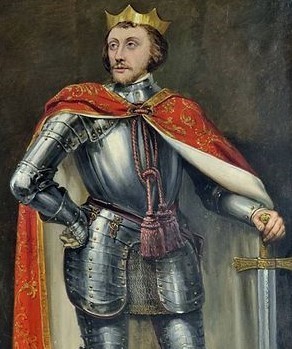

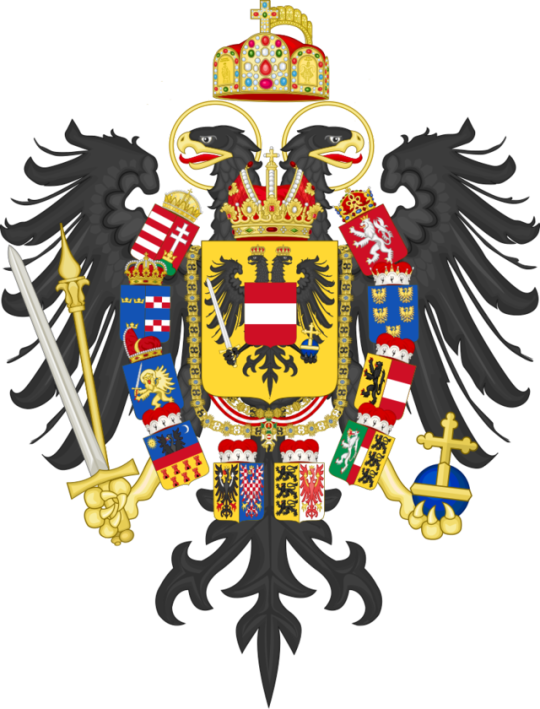
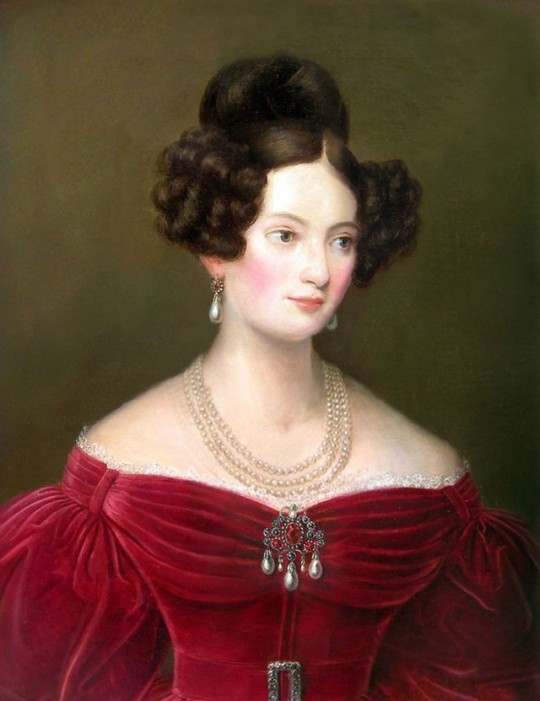
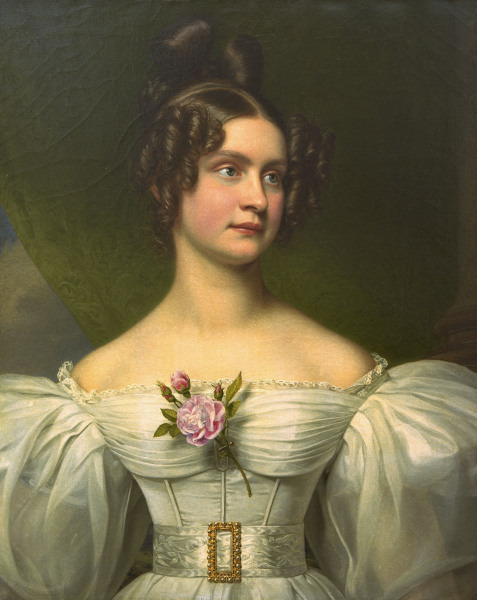
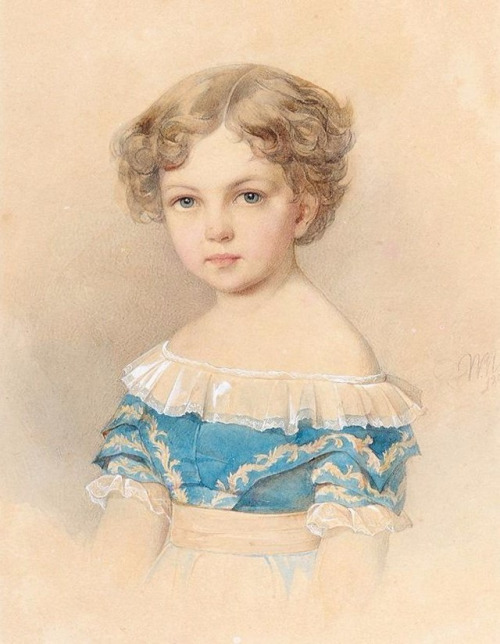
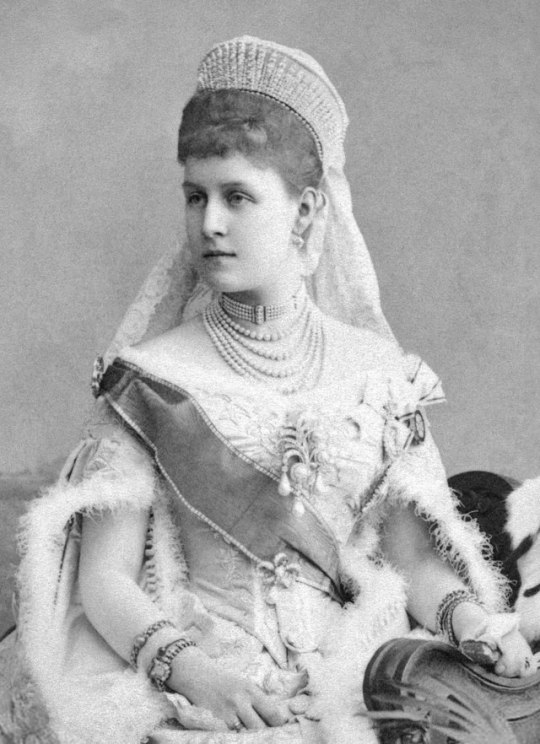
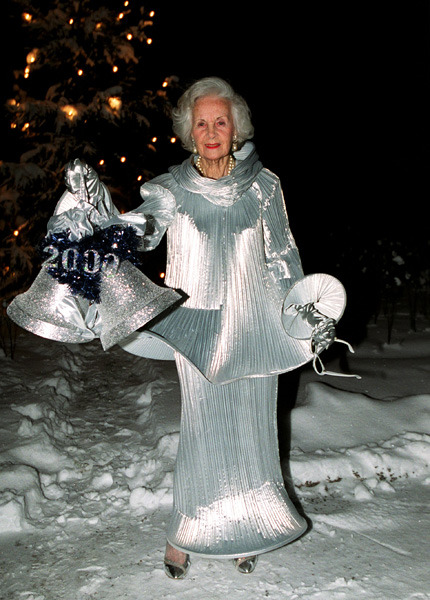
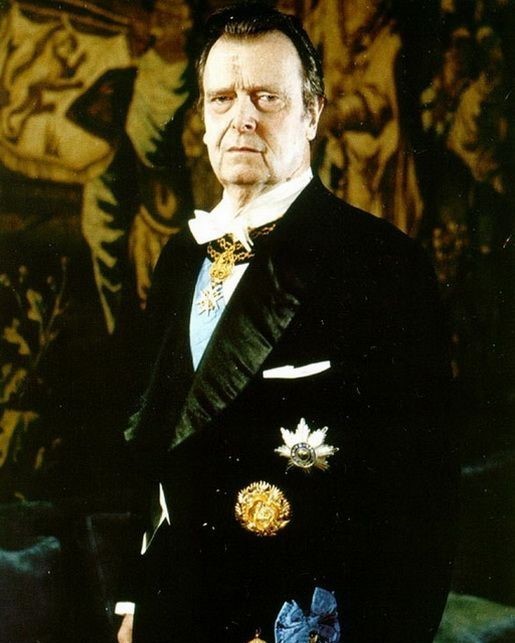

Royal Birthdays for today, August 30th:
Peter, King of Castile and Leon, 1334
Vlad II Dracul, Prince of Wallachia, 1400
Johann Nepomunk, Archduke of Austria, 1805
Marie Ludovika Wilhelmine, Princess of Bavaria, 1808
Mathilde Caroline of Bavaria, Grand Duchess of Hesse, 1813
Alexandra Alexandrovna, Russian Grand Duchess, 1842
Alexandra Georgievna, Princess of Greece, 1870
Princess Lilian, Duchess of Halland, 1915
Vladimir Kirillovich, Russian Grand Duke, 1917
Anne-Marie of Denmark, Queen of Greece,1946
#queen anne marie#princess lilian#alexandra alexandrova#alexandra georgievna#ludovika of bavaria#Archduke Johann Nepomuk#mathilde caroline of bavaria#Vladimir Kirillovich#Vlad II Dracul#peter of castile#long live the queue#royal birthdays
59 notes
·
View notes
Photo

The little King Mihai I of Romania and the Tsarevich Vladimir Kirillovich.
3 notes
·
View notes
Text
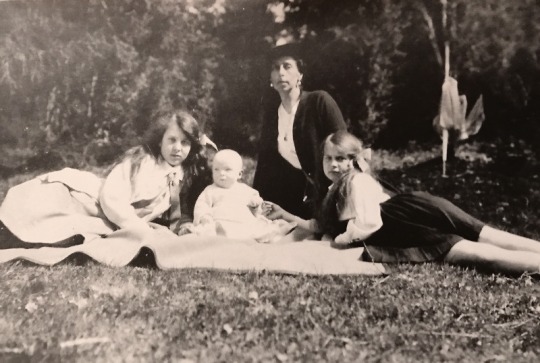
Grand Duke Vladimir Kirillovich surrounded by his mother Grand Duchess Victoria Feodorovna and sisters, Grand Duchesses Maria and Kira, c. 1918.
After two weeks in Haikko, the family moved to a rented house in Porvoo where, in August 1917, Victoria gave birth to Grand Duke Vladimir Kirillovich of Russia, her only son and the heir to the dynasty. The family remained in Finland, a former grand duchy under Russian rule, which had declared its independence in December 1917. They hoped that the White Russians would prevail. They gradually ran out of supplies and had to beg for help from family. In July 1918, Victoria wrote to her first cousin, Crown Princess Margaret of Sweden, begging her to send baby food so she could feed Vladimir. She was alienated from England because she felt her English relatives had not done enough to help the Romanovs.
#grand duke vladimir kirillovich#grand duchess victoria feodorovna#grand duchess maria kirillovna of russia#grand duchess maria kirillovna#grand duchess kira kirillovna of russia#grand duchess kira kirillovna#romanov#house of romanov#1918#1910s
35 notes
·
View notes
Note
I noticed in the Romanov - Russia question you just answered that you said “she would not have the support”. Do you view Grand Duchess Maria Vladimirovna of Russia as the rightful heir to the House of Romanov among the three claimants?
I personally don't care overly much and I know the title of house head is in dispute, but I do believe that since Vladimir Kirillovich was the heir to Russia after the death of the Grand Duke, it should go to Maria Romanova. But I'm not familiar with Russian succession traditions to be an authority.
Thanks for the question, Anon.
SomethingLikeALawyer, Hand of the King
9 notes
·
View notes
Note
I read about a pretty old post of yours about Vladimirovichi may I ask what are the other branches besides this? I am not really familiar with it at the same time I am curious who are their Family Head.
The branches are generally based on the sons of Nicholas I: Alexander, Konstantin, Nikolai and Mikhail.
The Alexandrovichi were obviously the main branch as belonging to the eldest son and thus future Tsar Alexander II. Many historians and enthusiasts further divide the Alexandrovichi from the main line by two sons of Alexander II, Vladimir and Paul, creating the subbranches Vladimirovichi and Pavlovichi, as they were the only two sons other than Alexander III himself to leave significant descendants. Nicholas II and OTMAA would be considered part of the main Alexandrovichi line, and because none of Nicholas II's brothers left significant descendants, there's no reason to divide it further.
Alexander II - Alexander III - Nicholas II - OTMAA
Alexander II - Vladimir - Vladimirovichi (Kirill + his descendants, Boris, Andrei and Elena)
Alexander II - Paul - Pavlovichi (Dmitri, Maria, the Paleys)
Next are the Konstantinovichi, the descendants of Grand Duke Konstantin Nikolaevich. His daughter Olga became Queen of the Hellenes (Greece), but of his sons only Konstantin Konstantinovich left a large family. Unfortunately many of his sons were killed in the revolution, and his two surviving sons, Gavriil and Georgiy, didn't have children, so this line has pretty much died out in the male line, but there are plenty through the female line.
The Nikolaevichi were the smallest branch, as only the legitimate children of Nikolai Nikolaevich are generally included, his sons Grand Duke Nikolai Nikolaevich the Younger and Grand Duke Petr Nikolaevich. Of the two, only Petr had children, and only one son, Roman. Roman had two sons, but only one had children, and they were all daughters, so the male line has (I believe) died out.
Then the Mikhailovichi, which turned out to be one of the largest because of Alexander Mikhailovich's many sons with Nicholas II's sister Xenia. His brothers Georgiy and Mikhail also had children, but Georgiy's were both girls (Nina and Xenia) and Mikhail's were the product of an morganatic marriage and never lived in Russia. The current President and Vice President of the Romanov Family Association are both from this branch, and both descendants of Sandro and Xenia: Olga Andreevna (youngest daughter of their son Andrei) and Rostislav Rostislavovich (son of their son Rostislav).
The Vladimirovichi branch are the ones most vocally claiming the actual throne, though, as after the deaths of Nicholas II, Alexei, and Mikhail Alexandrovich, Kirill was next in line. Then his son, Vladimir Kirillovich, and in the present day the non-existent throne is claimed by his only child, Maria Vladimirovna. But the rest of the family don't generally agree with her claim.
6 notes
·
View notes
Photo

Grand Duke Dmitri Pavlovich with Prince Vladmir Kirillovich.
8 notes
·
View notes
Link
Hiệu ứng Dunning-Kruger chỉ ra rằng những người kém hiểu biết thường đánh giá cao bản thân hơn nhiều so với thực tế. Nhà tâm lý...
Hiệu ứng Dunning-Kruger chỉ ra rằng những người kém hiểu biết thường đánh giá cao bản thân hơn nhiều so với thực tế. Nhà tâm lý học người Nga Vladimir Kirillovich từng có thí nghiệm thú vị. Ông đề nghị một học sinh mặc bộ quần áo khác lạ vào lớp. Học sinh này tưởng rằng nhiều bạn trong lớp sẽ cười nhạo mình nhưng chưa đến 1/4 số người trong lớp phát hiện ra. Đây là "Hiệu ứng tiêu điểm" trong tâm lý học. Thực tế là chúng ta quan tâm quá nhiều đến những thứ liên quan đến bản thân, luôn cho rằng ánh mắt người khác đang tập trung vào mình và rơi vào trạng thái căng thẳng quá mức, khiến bản thân mệt mỏi. "Sống trong mắt người khác còn tệ hơn sống trong lòng chính mình. Khi bạn đánh giá quá cao địa vị của mình trong lòng người khác, thậm chí đánh giá quá cao mối quan hệ của bạn với người khác, điều chờ đợi sẽ là nỗi thất vọng lớn", Vladimir Kirillovich từng nói. Đừng đánh giá quá cao vị trí của bạn trong lòng người khác Nhà văn Jack London đã viết trong tác phẩm "The Sea Wolf": "Mọi người đều coi mình như một viên kim cương, nhưng với những người khác, nó chỉ là một dạng khác của kim cương, đó là than chì". Chúng ta luôn lầm tưởng rằng mình khác biệt với người khác, nhưng lại không biết rằng trong lòng người khác, bạn không có gì đặc biệt. Cựu Thủ tướng Anh Winston Churchill kể một câu chuyện. Một lần, ông được đài BBC mời đến phát biểu nhưng xe đi được nửa đường bị hỏng máy. Churchill quyết định bắt taxi giữa đường. "Đến đài BBC", ông nói. Vị tài xế vội vàng từ chối: "Xin lỗi, vì nơi đó quá xa nhà tôi. Khi đưa ông đến đó, tôi sẽ bỏ lỡ buổi phát sóng trực tiếp bài phát biểu của Thủ tướng Churchill. Ông ấy là thần tượng của tôi. Tôi sẽ không bao giờ để lỡ buổi phát biểu quan trọng này". Churchill cảm thấy rất xúc động nên rút ra 5 bảng Anh để tỏ lòng biết ơn của mình. Người lái xe lập tức thay đổi thái độ và quyết định đưa ông đến đài BBC. Vị cựu Thủ tướng ngạc nhiên, nhắc rằng anh ta còn phải nghe bài phát biểu nữa, nhưng người lái xe không quan tâm: "Bây giờ quý ngài đây quan trọng hơn ông ấy. Bài phát biểu không thể giúp cho kinh tế gia đình tôi". Khi đó Churchill hiểu rằng một số mối quan hệ rất mong manh, tưởng rằng không thể xuyên thủng nhưng thực ra rất dễ bị tổn thương. Ông nói, qua vụ việc này mới thấy điều quan trọng là con người phải hiểu rõ bản thân mình. "Đừng kỳ vọng quá nhiều vào bản thân và cũng đừng yêu cầu người khác coi trọng bạn. Nhìn thấy vị trí của chính mình và đặt mình vào đúng vị trí là trạng thái tâm trí mà chúng ta nên có". Trên đời không có ai là không thể thay thế được Nhạc trưởng người Mỹ- Walter Damrosch đã trở thành chỉ huy ban nhạc tuổi 20. Chàng trai trẻ đầy quyết tâm và nghị lực, luôn nghĩ mình có tài, là linh hồn của ban nhạc và là người không thể thiếu được. Trong một buổi tập, Walter quên mang theo đũa nhạc trưởng. Anh định cử người về nhà lấy nhưng vị thư ký nói: "Không sao, chỉ là một chiếc đũa, mượn là có". Walter cảm thấy hơi kỳ lạ bởi ngoài mình ra thì ai mang đũa nhạc trưởng đi nữa. Nhưng anh vẫn hỏi và ngay khi dứt lời, ba cây đũa được mang lên. Chúng đến từ một nghệ sĩ cello, một người chơi piano và một người kéo violin. Lúc này, Walter chợt hiểu rằng, hóa ra anh không phải là nhân vật không thể thay thế. "Nhiều người đã làm việc trong bí mật và sẵn sàng thay thế tôi bất kỳ lúc nào", vị nhạc trưởng suy ngẫm. Nếu quan sát kỹ, không khó để nhận thấy thực tế có nhiều người như vậy. Đừng nghĩ rằng chỉ bạn có tài năng và khó ai thay thế được mình. Thực tế là dù có vĩ đại đến đâu, không có bạn thì ngày mai mặt trời vẫn sẽ mọc và mọi việc vẫn diễn ra một cách bình thường. "Trên đời không có ai là không thể thay thế được. Bạn cho rằng, không có bạn là không được nhưng với người khác, điều đó lại càng tốt. Bạn cho rằng bản thân quan trọng nhất, nhưng người khác coi đó là trò cười. Bạn càng coi trọng bản thân, kết quả sẽ chỉ khiến bạn thất vọng", Walter Damrosch đúc kết. Đừng đánh giá quá cao mối quan hệ của bạn với người khác Trong một mối quan hệ, càng cho đi nhiều thì kỳ vọng càng cao nhưng một số nỗ lực giống như đổ nước vào giỏ tre, đổ rất nhiều nhưng rồi chẳng lưu lại được gì. Có một số đầu tư giống như vớt mặt trăng trong đáy chậu, dù cố gắng nhưng tất cả chỉ là giấc mơ. Đối với quan hệ giữa các cá nhân, nên thiết lập một nguyên tắc, đó là tôn trọng lẫn nhau, thân thiết với nhau. Không cố ý theo đuổi một mối quan hệ nào đó, không đánh giá quá cao mối quan hệ với bất kỳ ai, đó là dấu hiệu cho thấy sự trưởng thành của con người. Hạ thấp vị thế để tiến xa hơn Những người được người khác coi trọng thường khiêm tốn, hạ thấp vị thế của mình. Nam diễn viên Trung Quốc Trần Đạo Minh đầu năm 2020 trở thành từ khóa nóng trong các công cụ tìm kiếm tại đất nước tỷ dân. Mọi người đều bàn luận sôi nổi, nam diễn viên này vốn yên lặng đã lâu sao lại đột nhiên quay về trước mặt công chúng. Họ phát hiện ra Trần Đạo Minh vừa mới nhậm chức Chủ tịch Hiệp hội điện ảnh Trung Quốc. Theo đánh giá ông nhận được vinh dự này có thể nói là danh xứng với thực. Có người đã từng nói: "Anh ấy là người chỉ cần đứng ở một chỗ, không làm gì vẫn có thể biến thành một màn biểu diễn". Dù được nhiều người nể phục về tài diễn xuất cũng như đạo diễn, gọi là "thầy" nhưng Trần Đạo Minh vẫn luôn khiêm tốn, coi mình chỉ là một diễn viên bình thường. Không đánh giá quá cao bản thân là một loại tu dưỡng, nhưng cũng là một loại trưởng thành về mặt tinh thần. Nếu đề cao bản thân, bạn sẽ chỉ bị người khác coi thường. Chỉ bằng cách gạt bỏ trái tim kiêu ngạo sang một bên và học cách nhìn nhận bản thân, mới không ngừng tiến bộ. Có một câu nói: "Tôi nghĩ rằng người khác tôn trọng tôi vì tôi xuất sắc nhưng thực ra họ tôn trọng tôi vì chính họ mới là người xuất sắc". Trên đời này, người càng có năng lực thì thái độ của họ sẽ càng khiêm tốn. Là con người, đừng đánh giá bản thân quá cao, thế giới này vắng một ai đó cũng không ảnh hưởng gì. Cũng đừng đánh giá bản thân quá thấp. Mỗi người đều có sứ mệnh riêng, đừng so sánh bản thân với người khác, hãy sống tốt cuộc đời của chính mình. (Theo aboluowang)#tintuc #news
0 notes
Text
Người kém hiểu biết mới đánh giá quá cao bản thân

Hiệu ứng Dunning-Kruger chỉ ra rằng những người kém hiểu biết thường đánh giá cao bản thân hơn nhiều so với thực tế.
Nhà tâm lý học người Nga Vladimir Kirillovich từng có thí nghiệm thú vị. Ông đề nghị một học sinh mặc bộ quần áo khác lạ vào lớp. Học sinh này tưởng rằng nhiều bạn trong lớp sẽ cười nhạo mình nhưng chưa đến 1/4 số người trong lớp phát hiện ra. Đây là "Hiệu ứng tiêu điểm" trong tâm lý học.
Thực tế là chúng ta quan tâm quá nhiều đến những thứ liên quan đến bản thân, luôn cho rằng ánh mắt người khác đang tập trung vào mình và rơi vào trạng thái căng thẳng quá mức, khiến bản thân mệt mỏi.
"Sống trong mắt người khác còn tệ hơn sống trong lòng chính mình. Khi bạn đánh giá quá cao địa vị của mình trong lòng người khác, thậm chí đánh giá quá cao mối quan hệ của bạn với người khác, điều chờ đợi sẽ là nỗi thất vọng lớn", Vladimir Kirillovich từng nói.
Đừng đánh giá quá cao vị trí của bạn trong lòng người khác
Nhà văn Jack London đã viết trong tác phẩm "The Sea Wolf": "Mọi người đều coi mình như một viên kim cương, nhưng với những người khác, nó chỉ là một dạng khác của kim cương, đó là than chì". Chúng ta luôn lầm tưởng rằng mình khác biệt với người khác, nhưng lại không biết rằng trong lòng người khác, bạn không có gì đặc biệt.
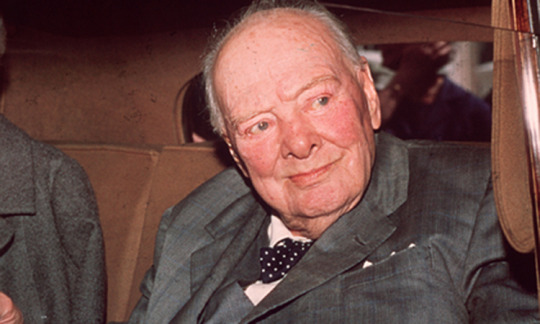
Cựu Thủ tướng Anh Winston Churchill. Ảnh: msn.com
Cựu Thủ tướng Anh Winston Churchill kể một câu chuyện. Một năm nọ, ông được đài BBC mời đến phát biểu nhưng xe đi được nửa đường bị hỏng máy. Churchill quyết định bắt taxi giữa đường. "Đến đài BBC", ông nói. Vị tài xế vội vàng từ chối: "Xin lỗi, vì nơi đó quá xa nhà tôi. Khi đưa ông đến đó, tôi sẽ bỏ lỡ buổi phát sóng trực tiếp bài phát biểu của Thủ tướng Churchill. Ông ấy là thần tượng của tôi. Tôi sẽ không bao giờ để lỡ buổi phát biểu quan trọng này".
Churchill cảm thấy rất xúc động nên rút ra 5 bảng Anh để tỏ lòng biết ơn của mình. Người lái xe lập tức thay đổi thái độ và quyết định đưa ông đến đài BBC. Vị cựu Thủ tướng ngạc nhiên, nhắc rằng anh ta còn phải nghe bài phát biểu nữa, nhưng người lái xe không quan tâm: "Bây giờ quý ngài đây quan trọng hơn ông ấy. Bài phát biểu không thể giúp cho kinh tế gia đình tôi".
Khi đó Churchill hiểu rằng một số mối quan hệ rất mong manh, tưởng rằng không thể xuyên thủng nhưng thực ra rất dễ bị tổn thương. Ông nói, qua vụ việc này mới thấy ��iều quan trọng là con người phải hiểu rõ bản thân mình. "Đừng kỳ vọng quá nhiều vào bản thân và cũng đừng yêu cầu người khác coi trọng bạn. Nhìn thấy vị trí của chính mình và đặt mình vào đúng vị trí là trạng thái tâm trí mà chúng ta nên có".
Trên đời không có ai là không thể thay thế được
Nhạc trưởng người Mỹ- Walter Damrosch đã trở thành chỉ huy ban nhạc tuổi 20. Chàng trai trẻ đầy quyết tâm và nghị lực, luôn nghĩ mình có tài, là linh hồn của ban nhạc và là người không thể thiếu được.
Trong một buổi tập, Walter quên mang theo đũa nhạc trưởng. Anh định cử người về nhà lấy nhưng vị thư ký nói: "Không sao, chỉ là một chiếc đũa, mượn là có". Walter cảm thấy hơi kỳ lạ bởi anh nghĩ bản thân là nhạc trưởng của cả ban nhạc, ngoài mình ra thì ai mang đũa nhạc trưởng đi nữa. Nhưng anh vẫn hỏi mọi người: "Ai có thể cho tôi mượn chiếc đũa?" Ngay sau khi Walter dứt lời, ba cây đũa được mang lên. Chúng đến từ một nghệ sĩ cello, một người chơi piano và một người kéo violin. Lúc này, Walter chợt hiểu rằng, hóa ra anh không phải là nhân vật không thể thay thế. "Nhiều người đã dày công làm việc trong bí mật và sẵn sàng thay thế tôi bất kỳ lúc nào", vị nhạc trưởng suy ngẫm.
Nếu quan sát kỹ, không khó để nhận thấy thực tế có nhiều người như vậy. Đừng nghĩ rằng chỉ bạn có tài năng và khó ai thay thế được mình. Thực tế là dù có vĩ đại đến đâu, không có bạn thì ngày mai mặt trời vẫn sẽ mọc và mọi việc vẫn diễn ra một cách bình thường.
"Trên đời không có ai là không thể thay thế được. Bạn cho rằng, không có bạn là không được nhưng với người khác, điều đó lại càng tốt. Bạn cho rằng bản thân quan trọng nhất, nhưng người khác coi đó là trò cười. Bạn càng coi trọng bản thân, kết quả sẽ chỉ khiến bạn thất vọng", Walter Damrosch đúc kết.
Đừng đánh giá quá cao mối quan hệ của bạn với người khác
Trong một mối quan hệ, càng cho đi nhiều thì kỳ vọng càng cao nhưng một số nỗ lực giống như đổ nước vào giỏ tre, đổ rất nhiều nhưng rồi chẳng lưu lại được gì. Có một số đầu tư giống như vớt mặt trăng trong đáy chậu, dù cố gắng nhưng tất cả chỉ là giấc mơ. Đối với quan hệ giữa các cá nhân, nên thiết lập một nguyên tắc, đó là tôn trọng lẫn nhau, thân thiết với nhau. Không cố ý theo đuổi một mối quan hệ nào đó, không đánh giá quá cao mối quan hệ với bất kỳ ai, đó là dấu hiệu cho thấy sự trưởng thành của con người.
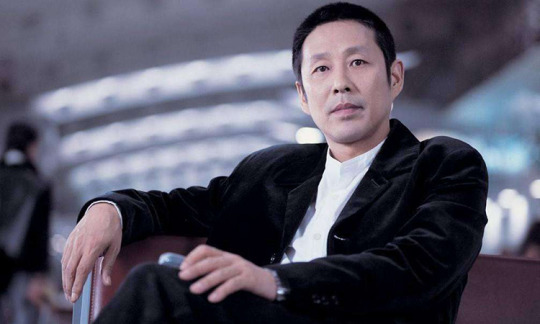
Nam diễn viên Trung Quốc Trần Đạo Minh. Ảnh: chinanews.
Hạ thấp vị thế để tiến xa hơn
Những người được người khác coi trọng thường khiêm tốn, hạ thấp vị thế của mình.
Nam diễn viên Trung Quốc Trần Đạo Minh đầu năm 2020 trở thành từ khóa nóng trong các công cụ tìm kiếm tại đất nước tỷ dân. Mọi người đều bàn luận sôi nổi, nam diễn viên này vốn yên lặng đã lâu sao lại đột nhiên quay về trước mặt công chúng. Họ phát hiện ra Trần Đạo Minh vừa mới nhậm chức Chủ tịch Hiệp hội điện ảnh Trung Quốc. Theo đánh giá ông nhận được vinh dự này có thể nói là danh xứng với thực. Có người đã từng nói: "Anh ấy là người chỉ cần đứng ở một chỗ, không làm gì vẫn có thể biến thành một màn biểu diễn". Dù được nhiều người nể phục về tài diễn xuất cũng như đạo diễn, gọi là "thầy" nhưng Trần Đạo Minh vẫn luôn khiêm tốn, coi mình chỉ là một diễn viên bình thường.
Không đánh giá quá cao bản thân là một loại tu dưỡng, nhưng cũng là một loại trưởng thành về mặt tinh thần. Nếu đề cao bản thân, bạn sẽ chỉ bị người khác coi thường. Chỉ bằng cách gạt bỏ trái tim kiêu ngạo sang một bên và học cách nhìn nhận bản thân, mới không ngừng tiến bộ.
Có một câu nói: "Tôi nghĩ rằng người khác tôn trọng tôi vì tôi xuất sắc nhưng thực ra họ tôn trọng tôi vì chính họ mới là người xuất sắc". Trên đời này, người càng có năng lực thì thái độ của họ sẽ càng khiêm tốn. Càng ngu dốt, kém tài thì người ta càng cho rằng mình quan trọng.
Là con người, đừng đánh giá bản thân quá cao, thế giới này vắng một ai đó cũng không ảnh hưởng gì. Cũng đừng đánh giá bản thân quá thấp. Mỗi người đều có sứ mệnh riêng, đừng so sánh bản thân với người khác, hãy sống tốt cuộc đời của chính mình.
Hải Hiền (Theo aboluowang)
from Tin mới nhất - VnExpress RSS https://ift.tt/3cmMIsv
via IFTTT
0 notes
Text
“Trump made his first trip to Russia in 1987, only a few years before the collapse of the Soviet Union. Invited by Soviet Ambassador Yuri Dubinin, Trump was flown to Moscow and Leningrad—all expenses paid—to talk business with high-ups in the Soviet command. In The Art of the Deal, Trump recounted the lunch meeting with Dubinin that led to the trip. “One thing led to another,” he wrote, “and now I’m talking about building a large luxury hotel, across the street from the Kremlin, in partnership with the Soviet government.”
Over the years, Trump and his sons would try and fail five times to build a new Trump Tower in Moscow. But for Trump, what mattered most were the lucrative connections he had begun to make with the Kremlin—and with the wealthy Russians who would buy so many of his properties in the years to come. “Russians make up a pretty disproportionate cross section of a lot of our assets,” Donald Trump Jr. boastedat a real estate conference in 2008. “We see a lot of money pouring in from Russia.”
The money, illicit and otherwise, began to rain in earnest after the Soviet Union fell in 1991. President Boris Yeltsin’s shift to a market economy was so abrupt that cash-rich gangsters and corrupt government officials were able to privatize and loot state-held assets in oil, coal, minerals, and banking. Yeltsin himself, in fact, would later describe Russia as “the biggest mafia state in the world.” After Vladimir Putin succeeded Yeltsin as president, Russian intelligence effectively joined forces with the country’s mobsters and oligarchs, allowing them to operate freely as long as they strengthen Putin’s power and serve his personal financial interests. According to James Henry, a former chief economist at McKinsey & Company who consulted on the Panama Papers, some $1.3 trillion in illicit capital has poured out of Russia since the 1990s.
At the top of the sprawling criminal enterprise was Semion Mogilevich. Beginning in the early 1980s, according to the FBI, the short, squat Ukrainian was the key money-laundering contact for the Solntsevskaya Bratva, or Brotherhood, one of the richest criminal syndicates in the world. Before long, he was running a multibillion-dollar worldwide racket of his own. Mogilevich wasn’t feared because he was the most violent gangster, but because he was reputedly the smartest. The FBI has credited the “brainy don,” who holds a degree in economics from Lviv University, with a staggering range of crimes. He ran drug trafficking and prostitution rings on an international scale; in one characteristic deal, he bought a bankrupt airline to ship heroin from Southeast Asia into Europe. He used a jewelry business in Moscow and Budapest as a front for art that Russian gangsters stole from museums, churches, and synagogues all over Europe. He has also been accused of selling some $20 million in stolen weapons, including ground-to-air missiles and armored troop carriers, to Iran. “He uses this wealth and power to not only further his criminal enterprises,” the FBI says, “but to influence governments and their economies.”
In Russia, Mogilevich’s influence reportedly reaches all the way to the top. In 2005, Alexander Litvinenko, a Russian intelligence agent who defected to London, recorded an interview with investigators detailing his inside knowledge of the Kremlin’s ties to organized crime. “Mogilevich,” he said in broken English, “have good relationship with Putin since 1994 or 1993.” A year later Litvinenko was dead, apparently poisoned by agents of the Kremlin.
Mogilevich’s greatest talent, the one that places him at the top of the Russian mob, is finding creative ways to cleanse dirty cash. According to the FBI, he has laundered money through more than 100 front companies around the world, and held bank accounts in at least 27 countries. And in 1991, he made a move that led directly to Trump Tower. That year, the FBI says, Mogilevich paid a Russian judge to spring a fellow mob boss, Vyachelsav Kirillovich Ivankov, from a Siberian gulag. If Mogilevich was the brains, Ivankov was the enforcer—a vor v zakone, or “made man,” infamous for torturing his victims and boasting about the murders he had arranged. Sprung by Mogilevich, Ivankov made the most of his freedom. In 1992, a year after he was released from prison, he headed to New York on an illegal business visa and proceeded to set up shop in Brighton Beach.
In Red Mafiya, his book about the rise of the Russian mob in America, investigative reporter Robert I. Friedman documented how Ivankov organized a lurid and violent underworld of tattooed gangsters. When Ivankov touched down at JFK, Friedman reported, he was met by a fellow vor, who handed him a suitcase with $1.5 million in cash. Over the next three years, Ivankov oversaw the mob’s growth from a local extortion racket to a multibillion-dollar criminal enterprise. According to the FBI, he recruited two “combat brigades” of Special Forces veterans from the Soviet war in Afghanistan to run the mafia’s protection racket and kill his enemies.
Like Mogilevich, Ivankov had a lot of dirty money he needed to clean up. He bought a Rolls-Royce dealership that was used, according to The New York Times, “as a front to launder criminal proceeds.” The FBI concluded that one of Ivankov’s partners in the operation was Felix Komarov, an upscale art dealer who lived in Trump Plaza on Third Avenue. Komarov, who was not charged in the case, called the allegations baseless. He acknowledged that he had frequent phone conversations with Ivankov, but insisted the exchanges were innocent. “I had no reason not to call him,” Komarov told a reporter.
The feds wanted to arrest Ivankov, but he kept vanishing. “He was like a ghost to the FBI,” one agent recalls. Agents spotted him meeting with other Russian crime figures in Miami, Los Angeles, Boston, and Toronto. They also found he made frequent visits to Trump Taj Mahal in Atlantic City, which mobsters routinely used to launder huge sums of money. In 2015, the Taj Mahal was fined$10 million—the highest penalty ever levied by the feds against a casino—and admitted to having “willfully violated” anti-money-laundering regulations for years.
The FBI also struggled to figure out where Ivankov lived. “We were looking around, looking around, looking around,” James Moody, chief of the bureau’s organized crime section, told Friedman. “We had to go out and really beat the bushes. And then we found out that he was living in a luxury condo in Trump Tower.”
There is no evidence that Trump knew Ivankov personally, even if they were neighbors. But the fact that a top Russian mafia boss lived and worked in Trump’s own building indicates just how much high-level Russian mobsters came to view the future president’s properties as a home away from home. In 2009, after being extradited to Russia to face murder charges, Ivankov was gunned down in a sniper attack on the streets of Moscow. According to The Moscow Times, his funeral was a media spectacle in Russia, attracting “1,000 people wearing black leather jackets, sunglasses, and gold chains,” along with dozens of giant wreaths from the various brotherhoods.
Throughout the 1990s, untold millions from the former Soviet Union flowed into Trump’s luxury developments and Atlantic City casinos. But all the money wasn’t enough to save Trump from his own failings as a businessman. He owed $4 billion to more than 70 banks, with a mind-boggling $800 million of it personally guaranteed. He spent much of the decade mired in litigation, filing for multiple bankruptcies and scrambling to survive. For most developers, the situation would have spelled financial ruin. But fortunately for Trump, his own economic crisis coincided with one in Russia.
In 1998, Russia defaulted on $40 billion in debt, causing the ruble to plummet and Russian banks to close. The ensuing financial panic sent the country’s oligarchs and mobsters scrambling to find a safe place to put their money. That October, just two months after the Russian economy went into a tailspin, Trump broke ground on his biggest project yet. Rising to 72 stories in midtown Manhattan, Trump World Tower would be the tallest residential building on the planet. Construction got underway in 1999—just as Trump was preparing his first run for the presidency on the Reform Party ticket— and concluded in 2001. As Bloomberg Businessweek reported earlier this year, it wasn’t long before one-third of the units on the tower’s priciest floors had been snatched up—either by individual buyers from the former Soviet Union, or by limited liability companies connected to Russia. “We had big buyers from Russia and Ukraine and Kazakhstan,” sales agent Debra Stotts told Bloomberg.
Among the new tenants was Eduard Nektalov, a diamond dealer from Uzbekistan. Nektalov, who was being investigated by a Treasury Department task force for mob-connected money laundering, bought a condo on the seventy-ninth floor, directly below Trump’s future campaign manager, Kellyanne Conway. A month later he sold his unit for a $500,000 profit. The following year, after rumors circulated that Nektalov was cooperating with federal investigators, he was shot down on Sixth Avenue.
Trump had found his market. After Trump World Tower opened, Sotheby’s International Realty teamed up with a Russian real estate company to make a big sales push for the property in Russia. The “tower full of oligarchs,” as Bloomberg called it, became a model for Trump’s projects going forward. All he needed to do, it seemed, was slap the Trump name on a big building, and high-dollar customers from Russia and the former Soviet republics were guaranteed to come rushing in. Dolly Lenz, a New York real estate broker, told USA Today that she sold some 65 units in Trump World Tower to Russians. “I had contacts in Moscow looking to invest in the United States,” Lenz said. “They all wanted to meet Donald.”
To capitalize on his new business model, Trump struck a deal with a Florida developer to attach his name to six high-rises in Sunny Isles, just outside Miami. Without having to put up a dime of his own money, Trump would receive a cut of the profits. “Russians love the Trump brand,” Gil Dezer, the Sunny Isles developer, told Bloomberg. A local broker told The Washington Post that one-third of the 500 apartments he’d sold went to “Russian-speakers.” So many bought the Trump-branded apartments, in fact, that the area became known as “Little Moscow.”
Many of the units were sold by a native of Uzbekistan who had immigrated from the Soviet Union in the 1980s; her business was so brisk that she soon began bringing Russian tour groups to Sunny Isles to view the properties. According to a Reuters investigation in March, at least 63 buyers with Russian addresses or passports spent $98 million on Trump’s properties in south Florida. What’s more, another one-third of the units—more than 700 in all—were bought by shadowy shell companies that concealed the true owners.
Trump promoted and celebrated the properties. His organization continues to advertise the units; in 2011, when they first turned a profit, he attended a ceremonial mortgage-burning in Sunny Isles to toast their success. Last October, an investigation by the Miami Herald found that at least 13 buyers in the Florida complex have been the target of government investigations, either personally or through their companies, including “members of a Russian-American organized crime group.” Two buyers in Sunny Isles, Anatoly Golubchik and Michael Sall, were convicted for taking part in a massive international gambling and money-laundering syndicate that was run out of Trump Tower in New York. The ring, according to the FBI, was operating under the protection of the Russian mafia.”
- Craig Unger, “Trump’s Russian Laundromat,” The Nation. July 13, 2017.
1 note
·
View note